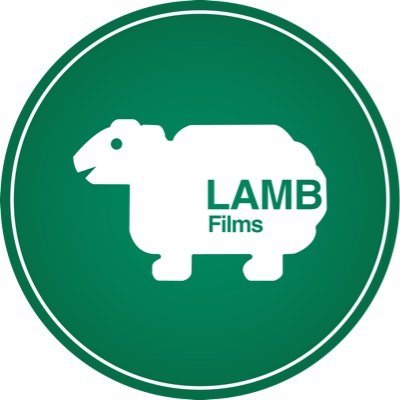Could you talk a little about the project you’re working on with Community Arts Partnership?
The project is called “Staying Here” and it’s a collaboration between a number of different organisations, including ourselves at Lamb Films, the Belfast Film Academy, Community Arts Partnership, as well as Esme Mitchell Trust, the Community Foundation of Northern Ireland Social Justice Fund which funded it. We are working with community organisations such as Forward South, Chinese Welfare Association, Annadale Community Centre and Mornington Community Project. We’re hoping to work with Belfast Met and also Northern Ireland Screen to bring the participants in to contact with where they can further their skills in higher education and within the Industry itself.

Essentially, we are taking 18 young people from south Belfast, aged between 17 and 25, for a three-month course of story development, film-making skills, cultural conversations, and hopefully it will lead to some kind of pathway to employment through creativity.
The end result will be that we will all make a 15 minute film that we are aiming to make in a carbon neutral, ecologically friendly, way. And we’ll make it within the regulations put forward in the BFI Albert scheme.
So, even though it’s about film-making and creating a story, the story is about the environment. It’s about saying we’re staying here, this is our environment, and we’re going to clean it up.
Who will be working as facilitators?
We’re going to work with Tony McCauley and Pamela Brown, and their job will be to extract the stories from the young people and we’ll see what issues are around.
The film-making part of it is a tool to bring about a bit of cohesion, a bit of fun, learning new skills, and at the end we’ll have something that we’re all very proud of. We’ll have a three or four-day film shoot and we will put those new skills into practice.
Where do the young people come from?
Yeah, they’re from a wide range of groups. What we want to do is have a mix-up of people, essentially. They’re will be people from a Roma background, some from an African background, but we’ve also people from the Ormeau Road, people from The Markets and people from Donegal Road. We opened the project out to any community group in South Belfast. We weren’t stipulating what background people could come from. There was no prerequisite. It would be good if participants didn’t have experience in film-making therefore we could fill that gap with this course.

Basically, we reached out to a number of charities, to community organisations which work with young people and we said we have a three-month of training scheme using creativity as a tool. And throughout that process we will bring young people together and they will develop new skills as well as form friendships and boost their confidence.
Why the environment as the key starting point?
We decided to look at the environmental question because that’s where the industry is going now. The whole film industry is having to clean up its act and become a lot more environmentally conscious. And if you can have young people trained with that approach in mind, it makes it more appetising to the industry especially if they’ve already got an inbuilt environmental standard within their education.
That is an important point, because there’s people who have been working in the industry their whole lives who don’t have that education.
So Community Arts Partnership and Lamb Films alongside other partners are offering an eco-friendly film making course?
That’s the first part of the project. The second part is that you have writers, Pamela Brown and Tony McCauley, will be coming in to talk to the young people engage with them and extract stories about their lives or about what they think about the environment, or how they think about the community.
We want to know about the issues which affect their community, issues which would cause their community harm. They could be environmental, they could be social, they could be political, or it could be about economic issues, although we have found that most of the young people we talk to are concerned about Climate Change.
You think that Climate Change will be a central issue?
Exactly, but we also think that the environment just doesn’t mean carbon emissions. Thinking about the environment also means the community you live in. It means, for example, cleaning up, if people are starting to leave a lot of rubbish all over the place and it’s bringing in rats, it’s about cleaning up that area. Or it might be about cleaning up a nearby beach. It can be about making people more responsible for the area they live in and to take pride in that. And taking pride in your area can improve the area, can improve the lives of the people who are living in it.

